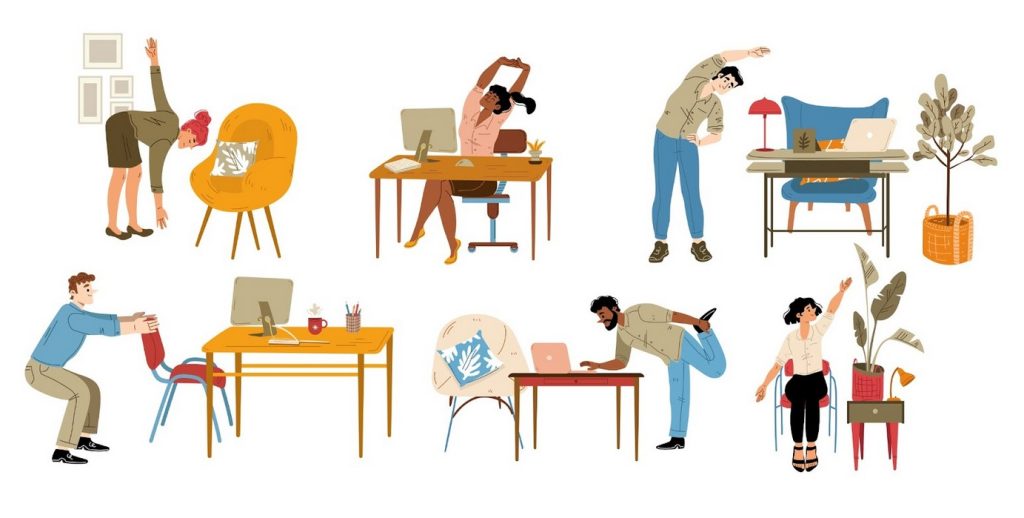Introduction: The Hidden Toll of Stress
No doubt, stress is considered a natural part of life in today’s fast-paced world. Due to pressure from the demanding job and personal responsibility, the urge to perform all the time could be stressful. From chronic stress, the American Psychological Association casts a wide net on the implications, linking it to several cases of health issues, among which are heart disease, anxiety, depression, and diminished immune function. But in a side of physical premises, not only mental growth does it wreak havoc to stability and conduct, attitude toward relationships, productivity, and general life balance.
However, stress, when correctly taken, is not a foe. In moderation, it can be a motivator for hitting deadlines, solving problems, and developing inner power. More or less, related to the good organization comes how this issue will be at last dealt with. Practical stress management converts how we bounce back, therefore enhancing mental clarity, emotionality, and even physical health. But how is this achieved? And what strategies can we use to achieve balance in life?
Thus, this article discusses how stress management enormously affects overall wellness along with effective techniques, adaptive clothing support, and life tips to accomplish harmony.
The Impact of Stress on Well-Being:
Stress plays an important role in every aspect of our lives, from how we think and feel to how our bodies react. Under chronic stress, the body is triggered and can start a cascade of physical and mental health issues including:
- Struggles with Self-Worth: Chronic stress is a known precursor to anxiety and depression. It compromises cognitive functions and leads to memory problems, poor concentration, and diminished creativity.
- Physical Problems: Chronic stress increases risks of developing heart disease, high blood pressure, digestive system problems, and insomnia. Moreover, run a higher risk of illness due to a weakened immune system.
- Emotional and Behavioral Changes: Chronic stress usually causes irritability, mood swings, and withdrawal from social activity. Stress can also lead to unhealthy means of coping with it, such as overeating, smoking, or substance abuse.
This being said, managing stress is a factor not only important for feeling good but also to safeguard our health and improve the quality of our life.

How Stress Management Improves Overall Well-Being:
The following are some benefits of stress management for general wellness:
- Increased Clarity of Thought
Chronic stress tends to cloud the mind; its victims often lose focus and difficulty making decisions and are incapable of handling single tasks. Stress management matters such as mindful meditation, deep breathing exercises, and time management can help readily declutter one’s mental system, enhance cognitive function, which consequently provides room for decisions making better and more productive work output.
- Emotional Robustness and Stability
Stress management regulates emotions, thereby minimizing anxiety and irritability. Writing, expressing positive affirmations, and the practice of affirmation help generate a better mood, which nurtures emotional robustness. When stress is under control, the person in question is typically capable of tackling challenges without feeling overwhelmed or defeated.
- Better Physical Health
Stress management techniques such as regular physical exercise, yoga, and proper sleep serve to lower the levels of cortisol within the body and thus prevent such stress-related health complications as heart disease, hypertension, and insomnia. All in all, an active lifestyle helps an individual to have improved energy and better physical health.
- Better Relationships and Social Life
Stress that is not managed quickly leads to increased temperamental changes, including irritability, anger, and withdrawal from social life; in clear terms, this creates ripples on others. The stressed individual is thus taught to communicate assertively, become more patient, and behave/relate rather more positively with members of his/her household. This goes to make for even stronger structures for the relationship and improved social life.
Practical Stress Management Techniques:
- Mindfulness and meditation
Practices such as meditation and deep-breathing exercises calm the mind and help reduce anxiety. Mindfulness regulates emotions by directing attention to the present moment to reduce rumination and, as a result, improve mental clarity and emotional well-being.
- Physical activity
Regular exercise like walking, yoga, and strength training bursts endorphins, natural mood elevators that minimize stress and promote health and well-being. Physical activity also contributes to the health of the cardiovascular system, induces sleep, and improves self-images.
- Time management and prioritization
Balancing time management techniques really lessen the feeling of being overwhelmed. Techniques of imposing realistic goals, breaking tasks into smaller steps, and finally, prioritizing important activities provide people with a sense of closure and control, leading to reduced levels of stress.
- Social support and communication
Connectivity with family and friends, sharing of experiences, and soliciting emotional support packages can be antidotes to stress. Open communications and nurturing relationships create a sense of belonging and emotional safety that can facilitate overall well-being.
The Role of Adaptive Clothing in Stress Management:
A commonly neglected aspect of managing stress is that of physical comfort. The wrong kind of clothing may operate against the body, hence physically stressing it because of interference with movements or general irritation. This is where the role of adaptive clothing comes into play. Adaptive clothing is designed to be engaging and patterned for one world of ever-changing bodies.
Their superior features like adjustable closures, clothing made for quick dressing and undressing, and clothes made from highly comfortable materials with moisture-wicking properties add to the comfort of the physically challenged against sensory discomfort.
This translates to significantly minimized stress levels, leaving the individuals focused on their day-to-day activities. Besides, it empowers people from the bottom of the soul into independent lives with adequate self-esteem boosts to further help them in remaining peaceful in their points of discomfort.
For example, surgical wear makes it easier for people recovering from surgery or dealing with mobility challenges with dressing and undressing, as it lessens frustration and the discomfort of traditional clothing. This not only enhances comfort but also promotes emotional well-being by fostering a sense of autonomy and dignity.

Building a Sustainable Stress Management Routine:
Effective stress management should not be treated as a temporary effort; it should be an unending process.
- Incorporate Daily Consciousness in Life: Take a few minutes every morning to meditate or breathe deep. It clears your mind and enables motivation and focus.
- Maintain a Balanced Life: Integrate exercise, healthy eating, and sleep into your daily regimen to facilitate better health both physically and mentally.
- Ample Clothing Comfortably: Choose clothing that allows for physical ease of dealing with health conditions or recovering from surgery.
- Discover Social Support: Develop healthy relationships and seek emotional support as needed. Talk with a trusted individual about feelings to diffuse stress and build emotional strength.
Cultivate Self-Care: Find something that brings you joy, like a hobby, journaling, or nature.
Conclusion: A Holistic Approach to Well-Being
Stress is an inevitable part of life, but it doesn’t have to deterministically control one’s own well-being. For most people, a few changes will be enough to make it happen: one has to identify effective stress-management approaches to changing how one engages with life challenges and continues on promoting mental strength, emotional stability, physical health, and social well-being.
By embracing mindfulness, physical exercise, managing time, and appreciating social support, the union of these becomes a holistic treatment in handling stress. Integrating adaptive clothing into everyday life enhances physical comfort and emotional empowerment, providing another measure for an exceptionally tolerant approach to well-being.
In short, stress management is reclaiming our lives. It’s about building resilience, comfort, and enclosed companionship. Stress management gives us the outlook to live a more balanced, happy, and fulfilling life.
Take the first step today. Breathe, reflect, and choose actually to manage stress rather than to be managed by it; your well-being depends upon that.
